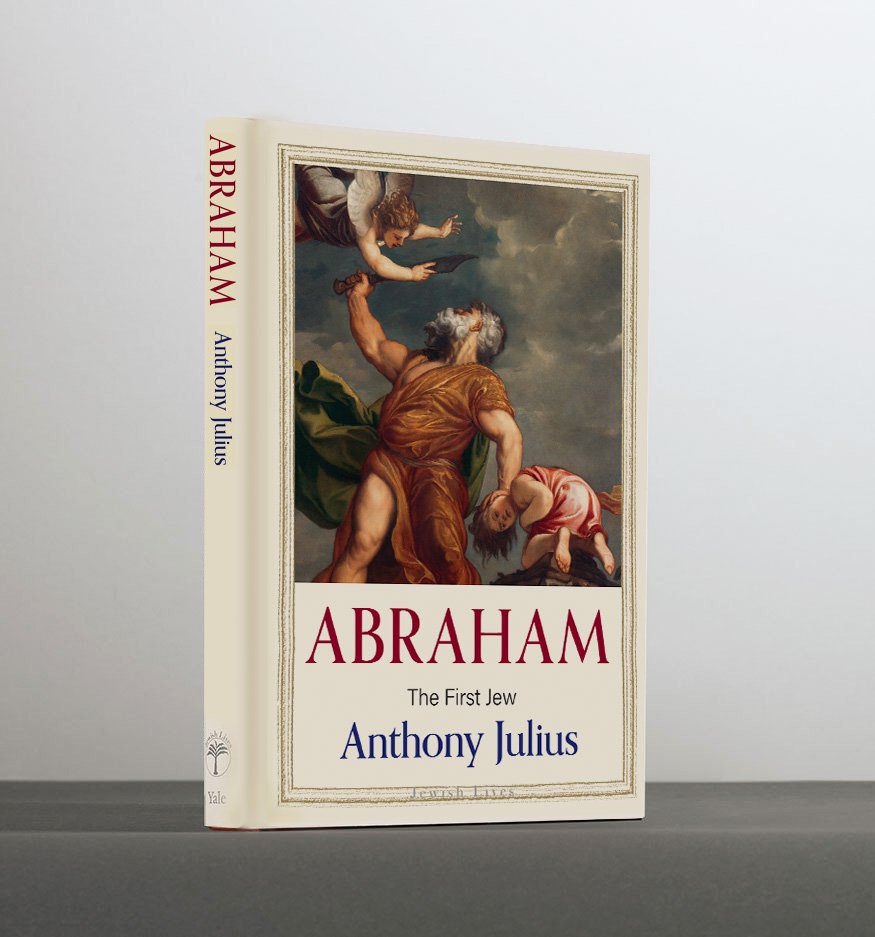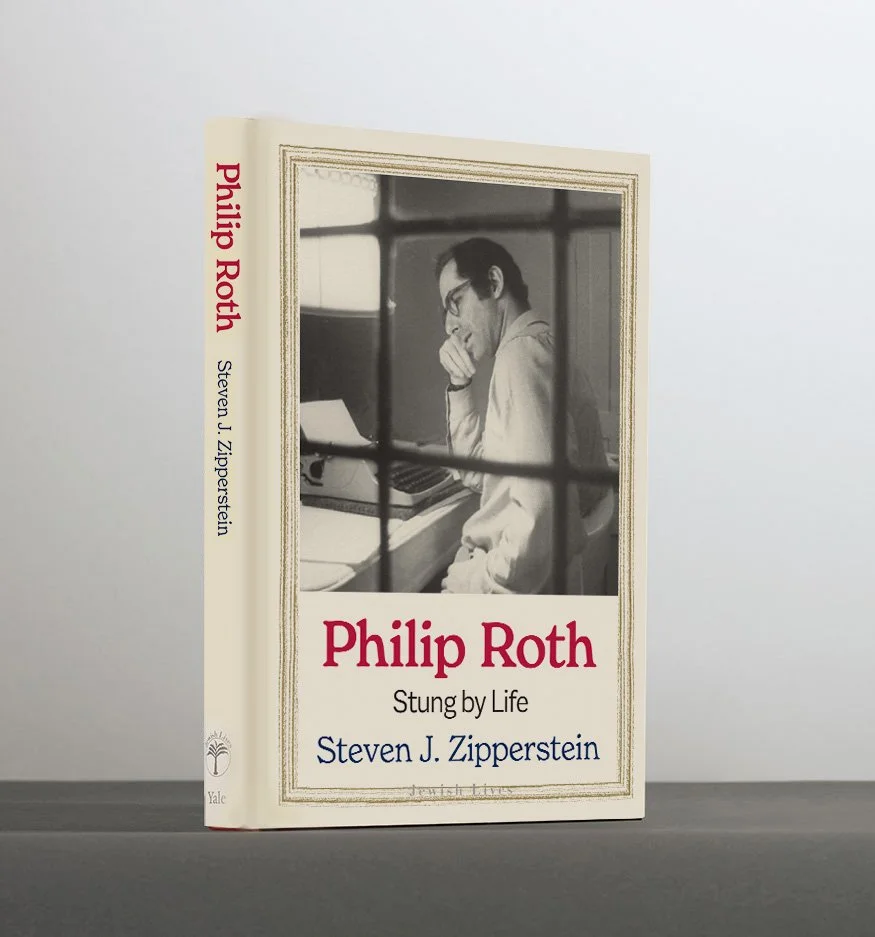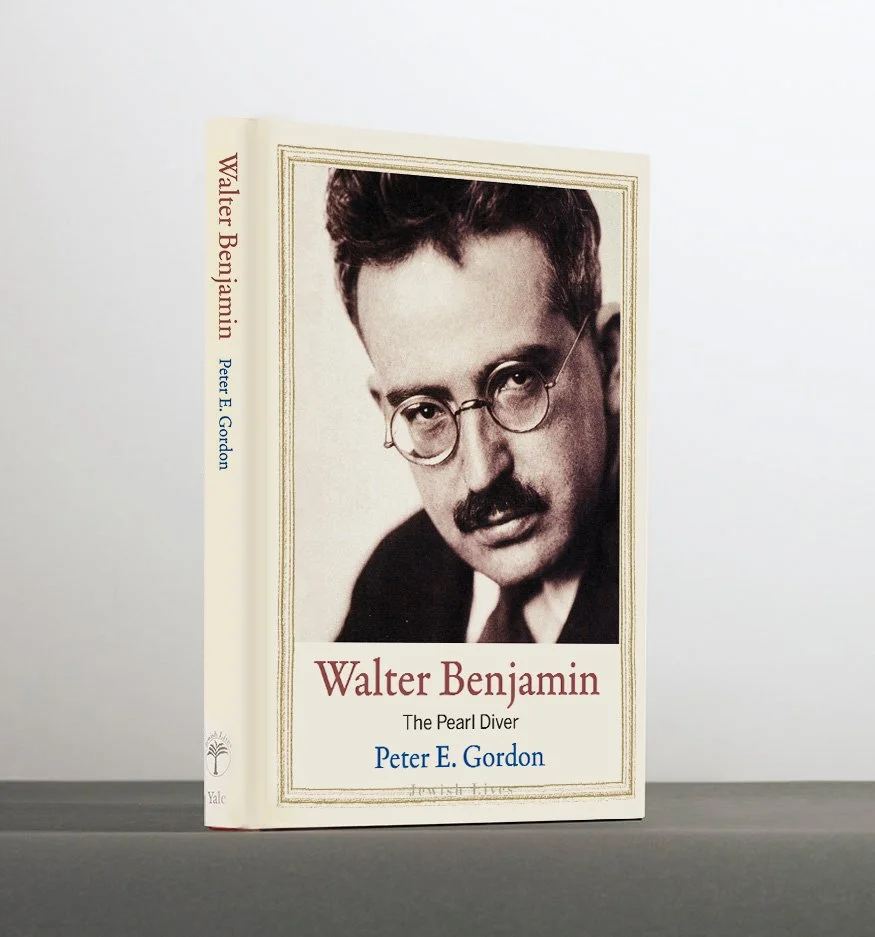Books
Antiquity. Arts + Culture. Entertainment. Philosophy + Religion. And more!

By Anthony Julius
Published February 11, 2025
392 pages
“A unique and searching masterpiece” —Rowan Williams
The story of Abraham, the first Jew, portrayed as two lives lived by one person, paralleling the contradictions in Judaism throughout its history
In this new biography of Abraham, Judaism’s foundational figure, Anthony Julius offers an account of the origins of a fundamental struggle within Judaism between skepticism and faith, critique and affirmation, thinking for oneself and thinking under the direction of another. Julius describes Abraham’s life as two separate lives, and as a version of the collective life of the Jewish people.
Abraham’s first life is an early adulthood of questioning the polytheism of his home city of Ur Kasdim until its ruler, Nimrod, condemns him to death and he is rescued, he believes, by a miracle. In his second life, Abraham’s focus is no longer on critique but rather on conversion and on his leadership over his growing household, until God’s command that he sacrifice his son Isaac. This test, the Akedah (or “Binding”), ends with another miracle, as he believes, but as Julius argues, it is also a catastrophe for Abraham. The Akedah represents for him an unsurpassed horizon—and in Jewish life thereafter. This book focuses on Abraham as leader of the first Jewish project, Judaism, and the unresolvable, insurmountable crisis that the Akedah represents—both in his leadership and in Judaism itself.

By Noga Arikha
Published May 13, 2025
280 pages
“A wonderfully three-dimensional portrait” —Adam Kuper
A thought-provoking account of the life and work of Franz Boas and his influential role in shaping modern anthropology
Franz Boas (1858–1942) is widely acknowledged for his pioneering work in the field of cultural anthropology. His rigorous studies of variations across societies were aimed at demonstrating that cultures and peoples were not shaped by biological predispositions. This book traces Boas’s life and intellectual passions from his roots in Germany and his move to the United States in 1884, partly in response to growing antisemitism in Germany, to his work with First Nations communities and his influential role as a teacher, mentor, and engaged activist who inspired an entire generation.
Drawing from Boas’s numerous but rarely read writings, Noga Arikha brings to life the man and the ideas he developed about the complex interplay of mind and culture, biology and history, language and myth. She provides a comprehensive picture of the cultural contexts in which he worked, of his personal and professional relationships, and of his revolutionary approach to fieldwork. He was celebrated in his lifetime for the cultural relativism he developed and the arguments he marshaled against entrenched racialism. But his was a constant battle, and Arikha shows how urgently relevant his voice and legacy have become again today.

By Jane Eisner
Published September 16, 2025
280 pages
“A robust celebration of a legendary musician” —Publishers Weekly
Jane Eisner traces the professional accomplishments and personal challenges of pop icon Carole King, exploring her unique contribution to American music
Carole King’s extraordinary career has defined American popular music for more than half a century. Born in New York City in 1942, she shaped the soundtrack of 1960s teen culture with such songs as “Will You Love Me Tomorrow,” one of many Brill Building classics she wrote with her first husband, Gerry Goffin. She was a leading figure in the singer-songwriter movement of the 1970s, with dozens of Billboard Hot 100 hits and music awards—her 1971 album Tapestry won a record four Grammys. Yet she struggled to reconcile her fame with her roles as a wife and mother and retreated to the backwoods of Idaho, only to emerge in recent years as a political activist and the subject of the Tony-winning Broadway show Beautiful: The Carole King Musical.
Journalist and author Jane Eisner places King’s life in historical and cultural context, revealing details of her humble beginnings in Jewish Brooklyn, the roots of her musical genius, her four marriages, and her anguish about public life. Drawing on numerous interviews as well as historical and contemporary sources, this book brings to life King’s professional accomplishments, her personal challenges, and her lasting contributions to the great American songbook.

By Steven J. Zipperstein
Published October 14, 2025
368 pages
“A work of literature itself” —Judith Thurman, author of Isak Dinesen: The Life of a Storyteller
A landmark biography of one of our most prominent chroniclers of American life
In this groundbreaking literary biography, Steven J. Zipperstein captures the complex life and astonishing work of Philip Roth (1933–2018), one of America’s most celebrated writers. Born in Newark, New Jersey—where his short stories and books were often set—Roth wrote with ambition and awareness of what was required to produce great literature. No writer was more dedicated to his craft, even as he was rubbing shoulders with the Kennedys and engaging in a spate of famous and infamous romances. And yet, as much as Roth wrote about sex and self, he viewed himself as socially withdrawn, living much like an “unchaste monk” (his words).
Zipperstein explores the unprecedented range of Roth’s work—from “Goodbye, Columbus” and Portnoy’s Complaint to the Pulitzer Prize–winning American Pastoral and The Plot Against America. Drawing on extensive archival materials and over one hundred interviews, including conversations with Roth about his life and work, Zipperstein provides an intimate and insightful look at one of the twentieth century’s most influential writers, placing his work in the context of his obsessions, as well as American Jewishness, freedom, and sexuality.

By Anthony Gottlieb
Published October 21, 2025
232 pages
“Entertaining and beautifully written” —A. C. Grayling
The first biography in more than three decades of the Austrian-born thinker Ludwig Wittgenstein, one of the most influential philosophers of the twentieth century
According to the philosopher Ludwig Wittgenstein (1889–1951), philosophy is a “battle against the bewitchment of our intelligence by means of language.” This audacious idea changed the way many of its practitioners saw their subject. In the first biography of Wittgenstein in more than three decades, Anthony Gottlieb evaluates this revolutionary idea, explaining the evolution of Wittgenstein’s thought and his place in the history of philosophy.
Wittgenstein was born into an immensely rich Viennese family but yearned to live a simple life, and he gave away his inheritance. After studying with Bertrand Russell in Cambridge, he wrote his famous Tractatus Logico-Philosophicus while serving in World War I. He then took several positions as a primary-school teacher in rural Austria before returning as a fellow to Cambridge, where a cultlike following developed around him. Wittgenstein worked not only as a philosopher and schoolteacher, but also as an aeronautical engineer in Manchester and as an architect in Vienna.
Gottlieb’s meticulously researched book traces the itinerant and troubled life of Wittgenstein, the development of his influential ideas, and the Viennese intellectual milieu and family background that shaped him.

By Peter E. Gordon
Published February 24, 2026
224 pages
“A solid introduction to a 20th-century thinker whose influence has only increased over time.” —Kirkus Reviews
An accessible and authoritative biography of Walter Benjamin that guides the reader through the complexity of his intellectual legacy and the turbulence of his time
Walter Benjamin (1892–1940) is widely considered one of the most creative cultural critics of the twentieth century. Esteemed for his literary acumen and capacious imagination, he developed a unique style of criticism—his friend Hannah Arendt called it pearl-diving—that sought out fragments of redemption in the ruins of bourgeois civilization.
Award-winning author Peter E. Gordon tells Benjamin’s story in a vivid and poetic style, inviting the reader to look beyond the image of Benjamin as a tragic figure of German-Jewish history and portraying him as a complex personality of unique and multifaceted gifts. Tracing Benjamin’s life from his Berlin childhood to his Parisian exile, through the romanticism of the youth movements and the conflicts over modernism and Marxism, Gordon brings Benjamin to life.